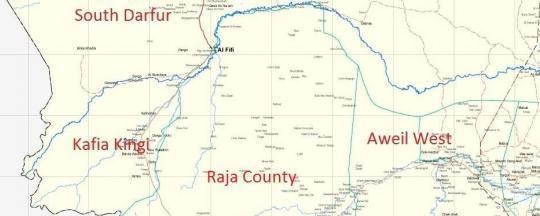The Sudanese government has criticized the recent report by the United Nations Secretary-General Ban Ki-moon to the UN Security Council, in which he suggested the Ugandan Lord’s Resistance Army group had hidden in the a disputed Kafia Kinji enclave on the country’s southern frontier.
“Reliable sources” suggested to the UN that the LRA leader, Joseph Kony, and his senior commanders had recently returned to the Sudan-controlled area, according to Ban’s report.
In a statement issued yesterday, the Sudanese Foreign Affairs Ministry said such information has neither been attributed to any source, nor verified, nor communicated directly to the Sudanese government.
The Sudanese government vehemently denied the claims by the UN, adding that Sudan has no interest to accommodate the Ugandan warlord in its territory.
The foreign ministry further called upon African Union Commission and African Union Peace and Security Council to verify the presence of the LRA forces in Sudan in accordance with the mechanisms and measures agreed upon.
The ministry also reiterated the government’s commitment to fighting the LRA for many years, signing an agreement with the Ugandan government in 2002 allowing it to chase LRA within Sudanese territories, until the separation of South Sudan.
Furthermore, the statement pointed out that Sudan took part in the regional initiative for fighting LRA, participating in the meetings of defence ministers in 2010 in Bangui, and those of defence ministers, chiefs of staff and military experts held in Addis Ababa in 2011-2012, to later became an observering member after the separation of Sudan Sudan.
The statement reaffirmed Sudan’s condemnation of the LRA atrocities committed against civilians, women and children, dismissing this behaviour as against humanitarian values.




